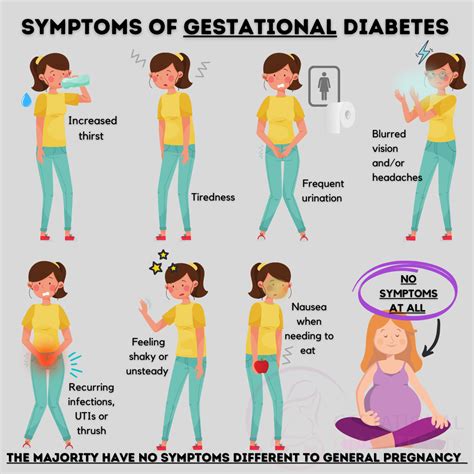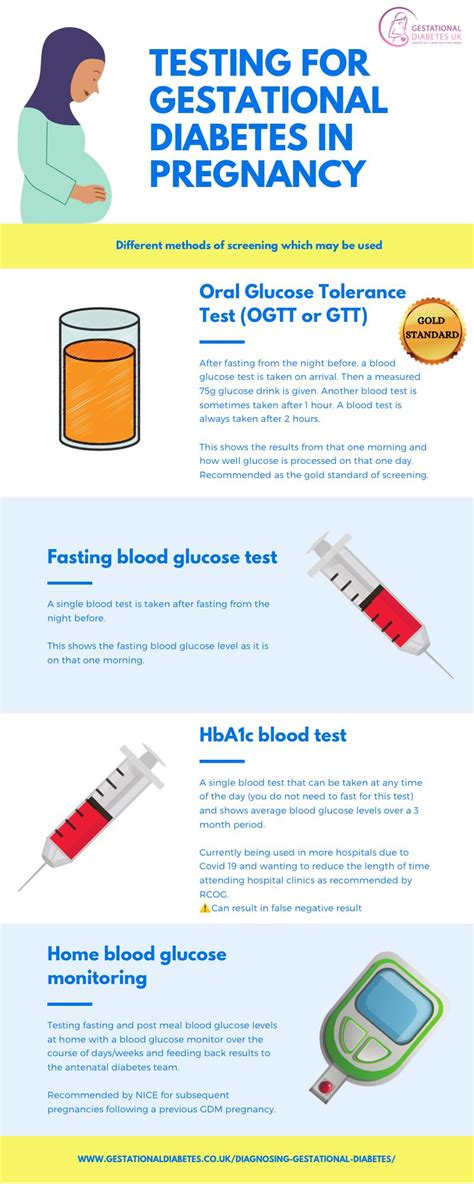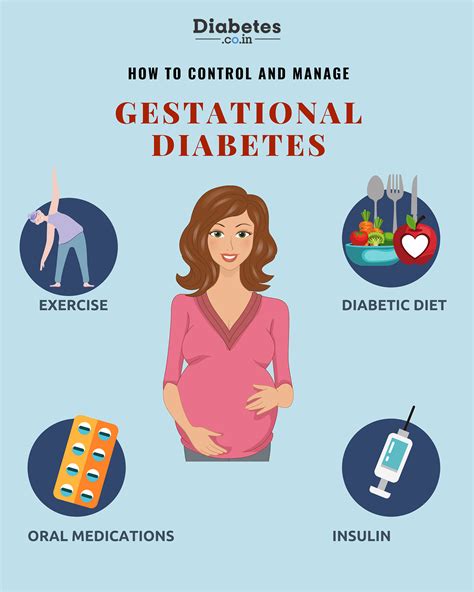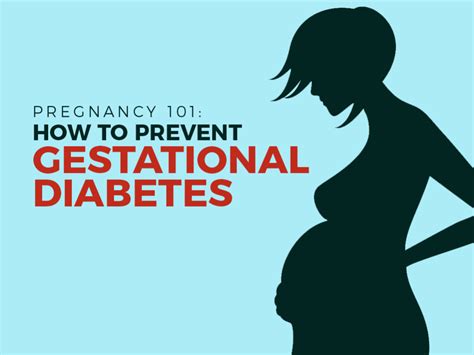Intro
Discover 7 key facts about gestational diabetes, including symptoms, risks, and management. Learn about blood sugar control, pregnancy complications, and healthy lifestyle choices to minimize risks and ensure a safe delivery for women with gestational diabetes mellitus.
Gestational diabetes is a condition that affects thousands of women worldwide during their pregnancy. It is a type of diabetes that develops when the body is not able to produce enough insulin, a hormone that regulates blood sugar levels, during pregnancy. This condition can have serious consequences for both the mother and the baby if left untreated or poorly managed. Understanding the facts about gestational diabetes is crucial for pregnant women to take the necessary steps to manage the condition and ensure a healthy pregnancy.
The importance of knowing about gestational diabetes cannot be overstated. It is a condition that can affect any pregnant woman, regardless of her age, ethnicity, or medical history. However, some women are at a higher risk of developing gestational diabetes than others. Factors such as a family history of diabetes, obesity, and a history of delivering large babies can increase a woman's risk of developing gestational diabetes. By understanding the risks and facts about gestational diabetes, women can take proactive steps to manage their condition and reduce the risks associated with it.
Pregnant women who are diagnosed with gestational diabetes often have many questions and concerns about the condition. They may wonder how it will affect their pregnancy, their baby, and their overall health. They may also be concerned about the treatment options available and how they can manage their condition effectively. By learning more about gestational diabetes, women can better understand their condition and take the necessary steps to ensure a healthy pregnancy and a healthy baby.
What is Gestational Diabetes?

Causes of Gestational Diabetes
The exact causes of gestational diabetes are not fully understood, but several factors are thought to contribute to its development. These include: * Hormonal changes: The hormones produced by the placenta during pregnancy can block the action of insulin, leading to high blood sugar levels. * Insulin resistance: As the body becomes more resistant to insulin, it produces more insulin to compensate, leading to high blood sugar levels. * Genetic predisposition: Women with a family history of diabetes are more likely to develop gestational diabetes. * Obesity: Women who are overweight or obese are more likely to develop gestational diabetes.Risk Factors for Gestational Diabetes

Symptoms of Gestational Diabetes
Gestational diabetes often has no symptoms, which is why it is essential for pregnant women to undergo regular screening tests. However, some women may experience: * Increased thirst and urination * Fatigue * Blurred vision * Cuts or wounds that are slow to heal * Recurring infections, such as yeast infections or urinary tract infectionsDiagnosing Gestational Diabetes

Treatment Options for Gestational Diabetes
The treatment for gestational diabetes typically involves a combination of lifestyle changes and medication. Lifestyle changes may include: * Eating a healthy, balanced diet that is low in sugar and refined carbohydrates * Engaging in regular physical activity, such as walking or swimming * Monitoring blood sugar levels regularly * Taking medication, such as metformin or insulin, if necessaryManaging Gestational Diabetes

Complications of Gestational Diabetes
If left untreated or poorly managed, gestational diabetes can lead to several complications, including: * High birth weight: Babies born to mothers with gestational diabetes may be larger than average, which can increase the risk of complications during delivery. * Premature birth: Gestational diabetes can increase the risk of premature birth, which can lead to respiratory and other complications in the baby. * Low blood sugar: Babies born to mothers with gestational diabetes may experience low blood sugar after birth, which can be life-threatening if not treated promptly. * Increased risk of stillbirth: Gestational diabetes can increase the risk of stillbirth, which is why regular prenatal monitoring is essential.Preventing Gestational Diabetes

Long-term Effects of Gestational Diabetes
Gestational diabetes can have long-term effects on both the mother and the baby. Women who have had gestational diabetes are at a higher risk of developing type 2 diabetes later in life, as well as other health complications, such as heart disease and high blood pressure. Babies born to mothers with gestational diabetes are also at a higher risk of developing obesity and type 2 diabetes later in life.Gestational Diabetes and Breastfeeding

Gestational Diabetes and Future Pregnancies
Women who have had gestational diabetes in a previous pregnancy are at a higher risk of developing it again in future pregnancies. However, with careful monitoring and management, it is possible to reduce the risk of complications and ensure a healthy pregnancy.Conclusion and Next Steps

We invite you to share your thoughts and experiences with gestational diabetes in the comments below. If you have any questions or concerns, please do not hesitate to reach out to us. We are here to provide you with the information and support you need to manage your condition and ensure a healthy pregnancy.
What are the symptoms of gestational diabetes?
+Gestational diabetes often has no symptoms, but some women may experience increased thirst and urination, fatigue, blurred vision, cuts or wounds that are slow to heal, and recurring infections.
How is gestational diabetes diagnosed?
+Gestational diabetes is typically diagnosed between 24 and 28 weeks of pregnancy using a screening test, followed by a diagnostic test if the results are abnormal.
Can gestational diabetes be prevented?
+While it is not possible to completely prevent gestational diabetes, there are several steps that women can take to reduce their risk, including maintaining a healthy weight, engaging in regular physical activity, and eating a healthy, balanced diet.
What are the long-term effects of gestational diabetes?
+Gestational diabetes can have long-term effects on both the mother and the baby, including an increased risk of developing type 2 diabetes and other health complications.
Can women with gestational diabetes breastfeed?
+Yes, breastfeeding is highly recommended for women with gestational diabetes, as it can help to regulate blood sugar levels and reduce the risk of complications.
